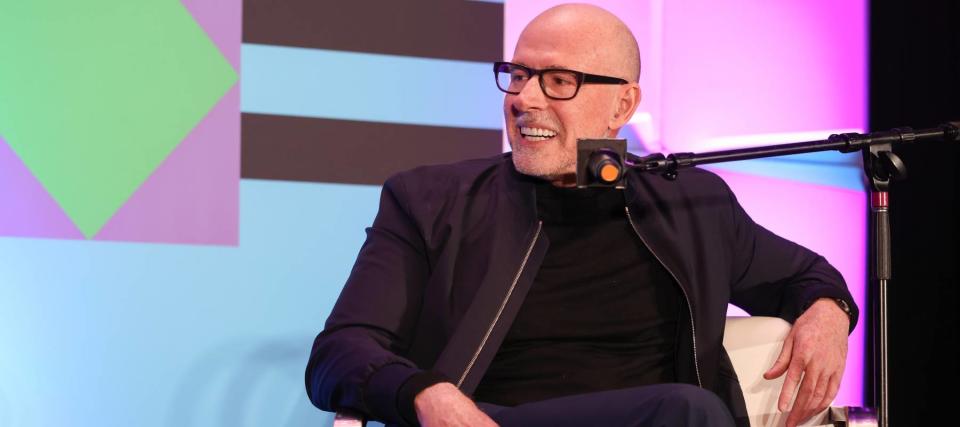NYU prof Scott Galloway shares the best thing young Americans can do with their money — it’ll set them up for life

According to the Federal Reserve, as of 2022, 37% of U.S. adults could not cover an unplanned $400 expense without borrowing or selling something to raise the cash.
You’ve probably seens stats like that before and so you also probably know that you should have an emergency fund in case a surprise bill does pop up.
Don't miss
Commercial real estate has beaten the stock market for 25 years — but only the super rich could buy in. Here's how even ordinary investors can become the landlord of Walmart, Whole Foods or Kroger
Cost-of-living in America is still out of control — use these 3 'real assets' to protect your wealth today, no matter what the US Fed does or says
These 5 magic money moves will boost you up America's net worth ladder in 2024 — and you can complete each step within minutes. Here's how
But if you’re a recent college graduate getting your feet wet in the workforce, building up that safety savings can be difficult, since essential expenses such as rent, groceries and student loan payments might be eating up the bulk of your earnings.
In a recent interview, NYU professor Scott Galloway discussed the mistakes he sees many 20-somethings make. He explained that many young adults don’t know how much they’re spending and don’t understand the repercussions of financing purchases and paying them off over time.
Luckily, he has a solution.
Parting with just $100 a month can go a long way
Galloway has one crucial piece of advice for young Americans — get into the habit of saving regularly.
“If you get used to saving just $100 a month … you're immediately in the top 10% of most financially responsible people in America,” he said. “Most people can’t do that.”
What exactly can saving $100 a month do for you? If you save and invest that money over a 45-year period and generate an average annual 8% return in a stock portfolio, which is a bit below the market’s average, you could end up with about $464,000.
According to the Federal Reserve, that's more than twice as much as the median $200,000 retirement savings balance among Americans aged 65 to 74 as of 2022.
Read more: Car insurance rates have spiked in the US to a stunning $2,150/year — but you can be smarter than that. Here's how you can save yourself as much as $820 annually in minutes (it's 100% free)
How to start off the right track
Not all young people are taught how to manage money before going to college, so they develop bad habits after they graduate. If you want to set yourself up for financial success, aim to adopt the following routines once you begin working. 1. Keep your overhead low. You may not have the largest salary when you’re new to the working world so try to keep your larger expenses, such as rent, to a minimum. For example, if you commit to an apartment lease that has you spending $1,200 a month instead of $1,500, you gain an extra $300 of leeway. 2. Automate your savings. When building an emergency fund, assign a preset amount to leave your checking account every month and land in your savings. If you're saving for retirement, sign up for your company's 401(k) or find an IRA with an automatic savings feature and set up a monthly transfer to that account as well.
Automating the process forces you to save money every month. And once you get into that habit, it becomes easier to stick to. 3. Resist the urge to finance purchases, and keep debts to a minimum. If you rack up credit card balances or finance an expensive vehicle, you are spending money on interest instead of saving that money and earning interest, or generating returns in a stock portfolio. Do your best to avoid credit card debt. And if you need to finance a car, only buy what you can truly afford.
As Galloway puts it, “There are enemies everywhere trying to take your money, trying to legally steal from you. And it takes real maturity not to (give in) to that.”
What to read next
Rich young Americans have lost confidence in the stock market — and are betting on these assets instead. Get in now for strong long-term tailwinds
Car insurance premiums in America are through the roof — and only getting worse. But 5 minutes could have you paying as little as $29/month
Stop crushing your retirement dreams with wealth-killing costs and headaches — here are 10 'must-haves' when choosing a trading platform (and 1 option that has them all)
This article provides information only and should not be construed as advice. It is provided without warranty of any kind.

 Yahoo Finance
Yahoo Finance 